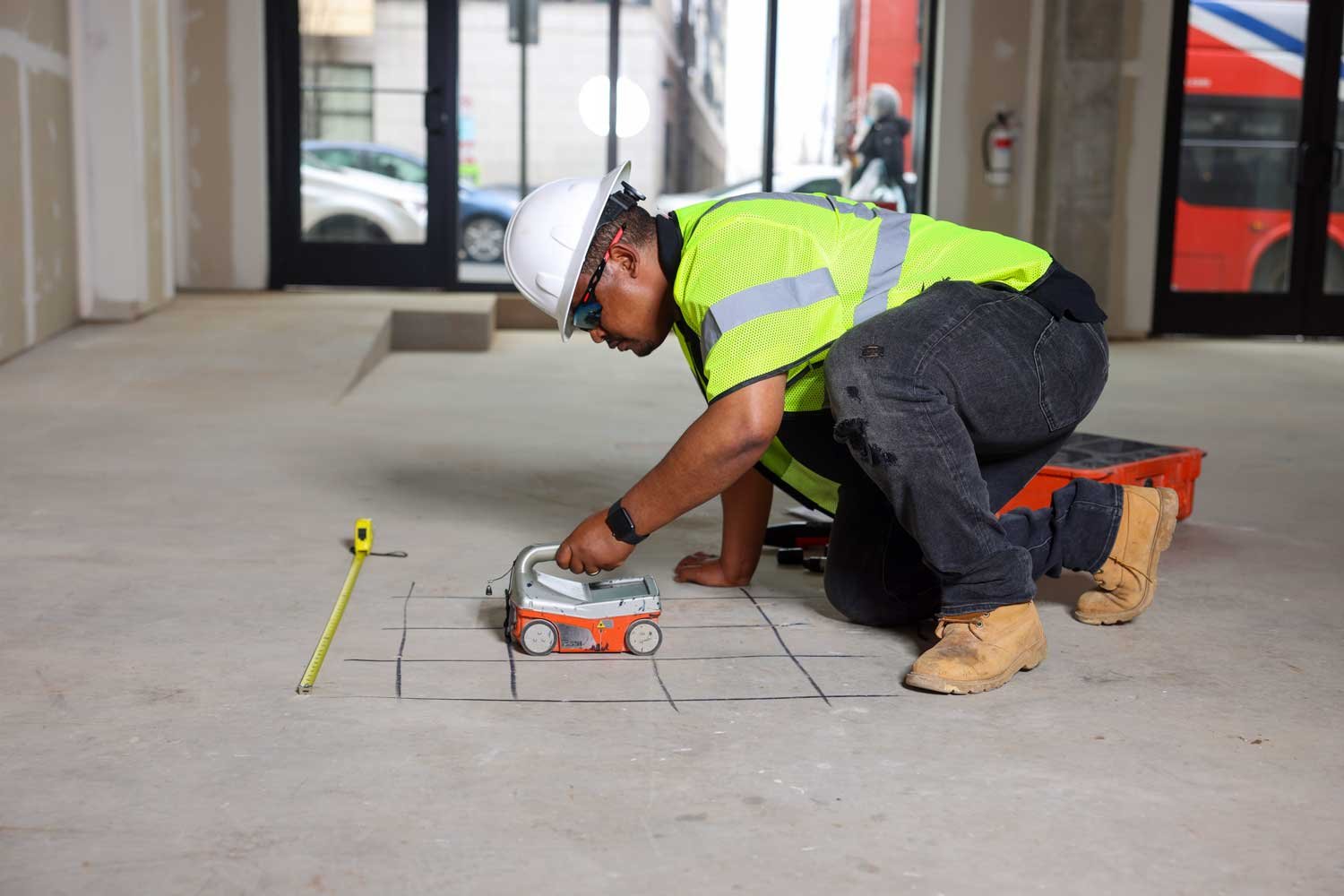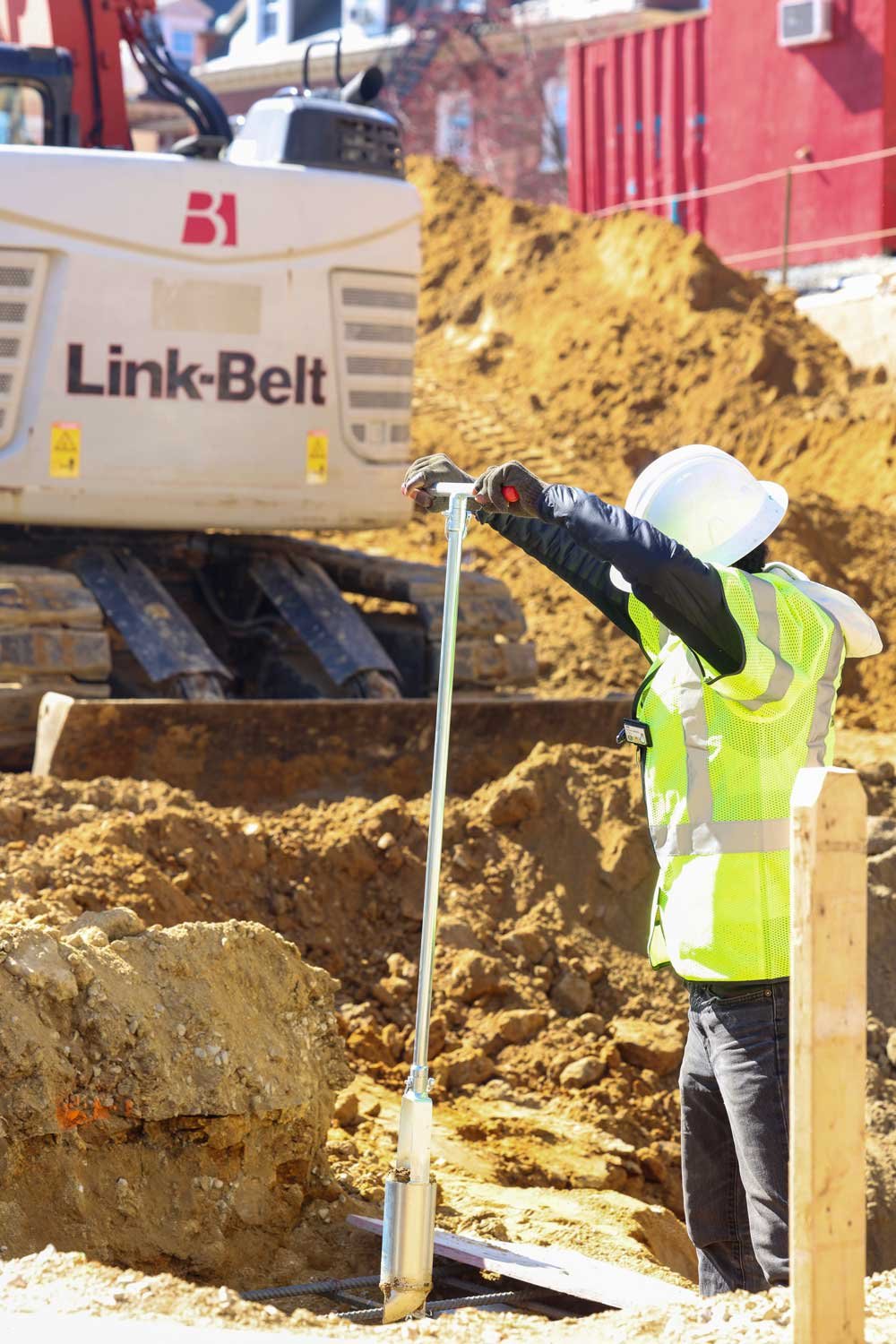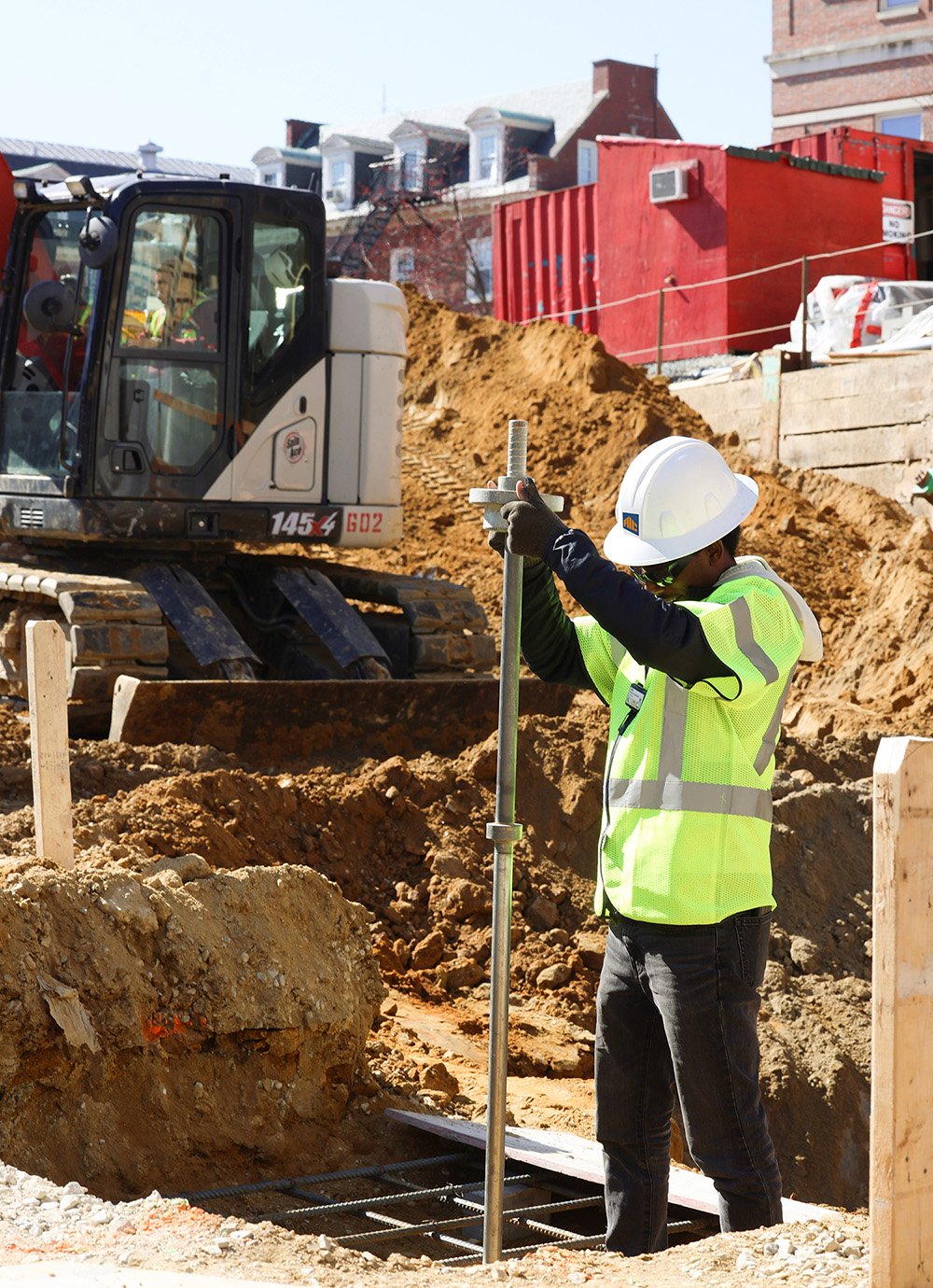SPECIALTY ENGINEERING INSPECTIONS
Inspections for as-built and post-construction projects.
No matter where you are in the design, construction, or post-construction phase, we’ll make sure your project is on solid ground.

After decades of use, an inspection can assess the structural health of a building. Our inspectors will tell you whether the foundations, concrete, and supporting structures remain sound - or need some TLC.
If you’ve overlooked something during construction, we can conduct specialty testing to ensure the building was built in compliance with the approved construction plans. Below is a snapshot of our specialty engineering inspection services.
Geotechnical Investigations
Save time and money before ground is even broken. A geotechnical investigation will determine the behavior and characteristics of the site’s stratigraphic layers. With an accurate assessment in hand, we can make recommendations based on site conditions.
Our geotechnical services include:
Subsurface exploration and testing
Site evaluations
Foundation analysis and design
In-situ testing and site monitoring
Design of retaining walls and earth retention systems
Soil stabilization and ground improvement
Design and control of engineered fill
Settlement and stress distribution analysis
Existing Foundation Investigation
This investigation can determine an existing foundation’s condition, design and construction practices, and potential problems or areas of concern.
It can be conducted before a building purchase, to identify potential structural problems, or to help determine the cause of existing damage to the foundation or structure. The investigation typically includes a visual inspection and soil and load-bearing capacity tests.
Infiltration/ Percolation Testing
Stormwater infiltration testing assesses a site’s potential to drain stormwater into the soil subsurface. Once we conduct comprehensive soil testing, the results can guide the site planning process and design of stormwater management systems.
Post-Construction Inspections
Depending on the project and your needs, we can use both non-destructive and destructive/invasive testing methods to ensure structural integrity. Non-destructive methods may employ a Windsor probe, ground penetrating radar, rebound hammer, or anchor pull testing. Destructive testing may include core extraction (for concrete or asphalt) or coupon testing to evaluate corrosion.
Windsor probe: Non-destructive concrete testing. The penetration test, typically utilizing the Windsor Probe test system, consists of a device that drives a probe into the concrete using a constant amount of energy.
Rebound hammer: Non-destructive concrete testing. The rebound hammer is a nondestructive testing apparatus, whereby the rebound of the spring-driven mass is measured after its impact on the concrete surface. The output of the rebound hammer is referred to as the rebound number and is correlated with the surface hardness of concrete
Anchor pull testing: Non-destructive concrete testing. A pull test calculates the design resistance of a base material and can determine which anchor system is right for your project. An anchor can either be tested to its failure point with a destructive pull-out test or tested to a proof load which is a non-destructive test.
Core extraction (for concrete or asphalt): Destructive/Invasive testing method. Core drilling is a reliable method for the extraction of representative samples from completed asphalt or concrete installations. Drilled cores of the actual construction material provide the best samples for laboratory tests that assess the material quality or verify compliance with project specifications.
GPR (Ground Penetrating Radar): Non-destructive investigation testing method. primarily used to map rebar in foundation tops and to measure the depths of abutments, mats, spread footings, and other relatively shallow concrete foundations. The method can also be used to locate and map shallow buried foundations without excavation. The GPR method receives and measures the reflections of radio waves sent down through the soil or concrete. These waves bounce off embedded objects such as rebar, and off of the foundation top and/or bottom if it is not deeper than the maximum penetration depth of the antenna being used. The method can be used to determine both the depth and location of reflectors within the foundation.
Coupon testing: Destructive/invasive investigation testing. Coupon tests are low in cost, simple to conduct and allow the simultaneous evaluation of numerous materials and variations of a single material. Alloy chemistry variations and metallurgical variations (ie., the effect of heat treatment, microstructure, welding and stress) can be considered. Coupon tests are easily adapted to evaluate specific types of corrosion, such as crevice corrosion and galvanic corrosion.




